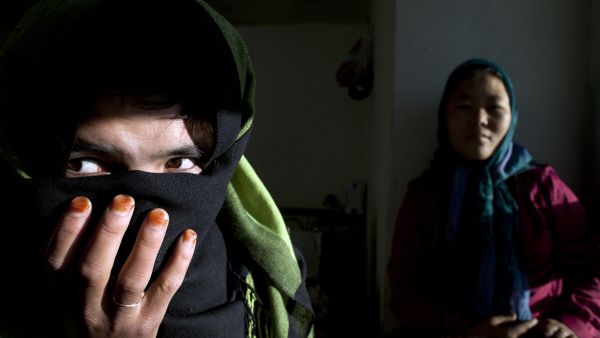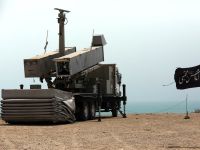Looking for a way out of Afghanistan? Maybe it's time to try something totally different, like putting into action, for the first time in history, the most enlightened edict ever passed by the UN Security Council: Resolution 1325.
Passed on October 31, 2000, the resolution was hailed worldwide as a great victory for both women and international peace. In a nutshell, it calls for women to participate equally in all processes of conflict resolution, peacemaking and reconstruction.
The resolution grew out of a recognition that while men at the negotiating table still jockey for power and wealth, women advocate for interests that coincide perfectly with those of civil society. They are concerned about their children and consequently about shelter, clean water, sanitation, jobs, health care, education.
It's been nine years since I started doing aid work in Afghanistan and I am frustrated by the lack of progress toward a peaceful and livable society. Yet, whenever I present my modest proposal for the implementation of 1325 to American big men who lay claim to expertise on Afghanistan, most of them strongly object.
They know the theory, they say, but they are precluded from throwing their weight behind the resolution by delicate considerations of "cultural relativism." Afghanistan, they remind me, is a "traditional" culture when it comes to women.
Westerners, they say, must respect that. Yet, the eagerness of Western men to defer to this "tradition" seems excessive, especially since few of the Afghan men who actually governed Afghanistan between 1919 and 1989 would have shared their sentiments. Modern ideas, including the idea of equality between the sexes, have been at the heart of Afghan cultural struggles for at least a century.
In the 1920s, King Amanullah founded the first high school for girls and the first family court to adjudicate women's complaints about their husbands; he proclaimed the equality of men and women, banned polygamy and the burqa and banished ultraconservative mullahs.
His modern ideas cost him his crown, but Amanullah and his modern, unveiled queen, Soraya, are remembered for their brave endeavour to drag the country into the modern world.
Stuffing ballot boxes
But in 2001, the US cast its lot with Hamid Karzai. We put him in power after a power-sharing conference in Bonn, to which only two Afghan women were invited. The US paid millions to stage two presidential elections, in 2004 and 2009, and looked the other way while Karzai's men stuffed the ballot boxes. An ever-growing number of Afghanistan watchers now identify the Karzai government as the single greatest problem the US faces in its never-ending war.
And what has Karzai done for the women of Afghanistan? Not a thing. That's the conclusion of a recent report issued by the Human Rights Research and Advocacy Consortium, an association of prominent aid and independent research groups in Afghanistan.
The report notes that Karzai has supported increasingly repressive laws against women, most notoriously the "Taliban-style" Shiite Personal Status Law, which not only legitimises marital rape, but prevents women from stepping out of their homes without their husbands' consent.
Karzai holds extraordinary power to make political appointments, yet, after nearly 10 years in office, only one cabinet ministry is led by a woman: the Ministry for Women's Affairs.
Among Afghanistan's city governments, he has named only one female mayor. And to the Supreme Court High Council, he has appointed no women at all.
Thus, from the standpoint of civilians, a war is not always over when it's "over," and the "peace" is not necessarily a real peace at all. Think of the Democratic Republic of Congo, where thousands of women have been gang-raped even though the country has been officially at peace since 2003.
I don't expect men in power to take seriously the Security Council's proposition that the involvement of women in negotiations makes for a better and more lasting peace. Progressive, peaceable men would prefer to live in a peace created by women and men together. But too many big men in Afghanistan and the US are doing very nicely, thank you, with the traditional arrangements.








